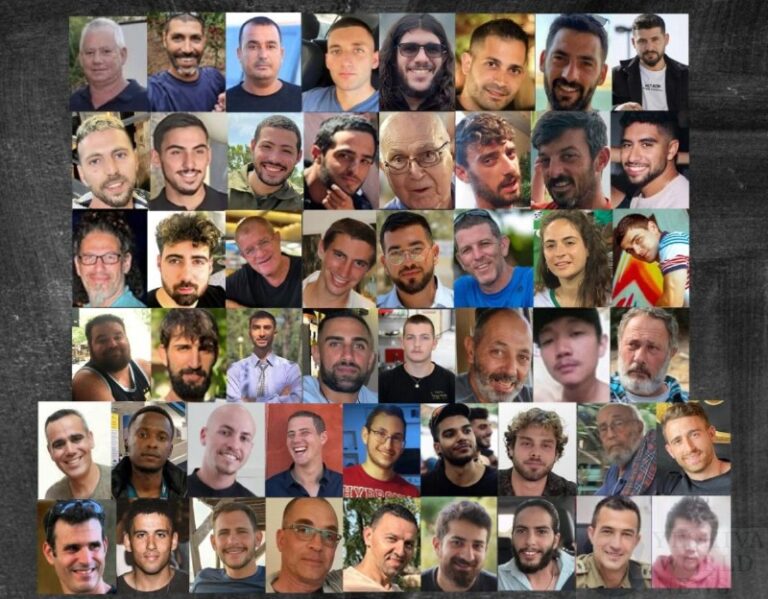 [By Rabbi Yair Hoffman for the Five Towns Jewish Times]
[By Rabbi Yair Hoffman for the Five Towns Jewish Times]
One issue that often comes up on Pesach is whether one’s medicines are permitted over Pesach. It is this author’s opinion, however, that there are a lot of misconceptions about the underlying halachos in regard to medicine over Pesach. This is an attempt to clarify some of those halachos.
There are two types of illnesses – those involving some sort of possible danger to life (Choleh sh’yesh bo sakanah) and those that do not involve danger to life. We will discuss both of these categories.
DANGER TO LIFE ILLNESS
Anyone with an illness or condition that involves a life-threatening danger or one that will or can shorten one’s life falls under this category. The Gemorah (Psachim 25a) writes that such a person is permitted to take any medication – even one with Chometz, unless the medications or cure involves a] Avodah Zarah – idolworship b] gilui arayos – moral impropriety c] shfichas damim – murdering someone. In other words, Chometz medications for someone with a life-threatening illness or condition are permitted. The Shulchan Aruch codifies this position in Yore Deah (155:3).
Indeed, the Pischei Teshuva (154:4) cites the response of the RadbaZ (Vol. IV #67) that there is not even a midas chassidus to refrain from taking forbidden medications. Indeed, although American law proscribes such activity, he writes that one should even force-feed a patient medication if he refuses to take it. It is thus forbidden to be stringent and not take the medicine.
IF OTHER MEDICINE IS AVAILABLE
If there are other medicines available that do not have actual Chometz, one should try and obtain them for Pesach, even if it involves some difficulty. One may also try to make sure that the Chometz portion of the medicine is less than 1.66 percent of the total ingredients. Thus, if there is a liquid medicine, watering down the medicine so that the Chometz is less than a 60th of the total volume is effective before Pesach. The Shulchan Aruch (OC 447:4) writes that if the Chometz is less than a sixtieth from before Pesach – it does not come back alive during Pesach.
AN ILLNESS WHERE THERE IS NO DANGER TO LIFE
When there is an illness where there is no danger to life, but there is still an illness, there is another method in which medicine containing Chometz may be taken. Neither the Torah nor Chazal forbade the consumption of Chometz when it is taken in a manner that is not –kederech hanasam – the benefit method of consumption. The Gemorah in Psachim (25b) thus allows Arlah to be consumed in a different – non-benefit manner. This is the view of the Ran in Psachim (25b) and is the halacha as codified in Shulchan Aruch Yore Deah (155:3).
SWALLOWING WITHOUT CHEWING
The Pischei Teshuvah (YD 155:6) cites the response of the Noda BiYehudah (YD #35) that, at least in regard to food such as Matzah, swallowing something whole is still considered eating. This is true regarding foods, but what about pills?
Rav Shlomo Zalman Auerbach zt”l writes (Minchas Shlomo Vol. I #17) that the Noda BiYehudah’s view is only in regard to food, but not pills. Thus he would permit the regular swallowing of Chometz pills for a sick person whose illness is not life-threatening.
However, the Posaik HaDor of the previous generation, Rav Chaim Ozer Grodzinsky zatzal (Teshuvas Achiezer Vol, III #31), disagrees with this position only permits the swallowing of medications for a sick person whose illness is not life-threatening, when the medicine is wrapped in a paper.
So who do we follow – Rav Shlomo Zalman zt”l or Rav Chaim Ozer zt”l? For this, as in all questions of a practical matter, one should consult one’s own Posaik. Of course, Rav Shlomo Zalman’s lenient view only pertains to non-chewable pills. If the pills are chewable, even he would require making it abnormal.
If my memory stands correctly, I heard Rav Dovid Cohen Shlita of Flatbush advise a number of people to wrap pills in one ply of a tissue.
Regardless, when there is an illness which is not life-threatening, it is clearly permitted to take forbidden medications in an abnormal way. The two exceptions to this are Kalei Kerem (See Dvarim 22:9) and milk/meat mixtures.
BUT DON’T OWN IT
One should, however, make sure that they are not owned by him but, rather, are sold to a gentile or still belong to the gentile owned pharmacy and payment arrangements will be made after Pesach. This is the ruling of Rav Shlomo Zalman Auerbach (Shulchan Shlomo Refuah Vol. II page 202). The rationale is to avoid violating bal year’eh ubal yematzeh. There are Poskim, however, who write that one may own it as well. This view was only in regard to non-chewable pills.
WHAT CONSTITUES AN ABNORMAL WAY?
If a liquid medicine is bitter this is considered shelo kederech hanaasam – abnormal.
If a pill is wrapped in a tissue this is also considered abnormal.
If a bit of liquid soap or kosher vinegar is added to liquid medicine it is also considered abnormal.
Of course, adding more ingredients to the liquid medicine before Pesach to the point where the Chometz is less than 1/60th is permitted even if it is not considered abnormal.
A CHILD
Generally speaking, a young child has the status of a sick person who has an illness that is not life-threatening, and may consume medicines that are not k’derech hanaasam.
KITNIYOS MEDICINE
The Mishna Brurah (453:7) rules that medicines that are made of kitniyos may be consumed by both types of sick people even in a regular normal way. If, however, the medicines are available without Kitniyos, effort should be made to obtain them.
THE OUTER CAPSULE
Some Poskim have ruled that the outer capsule of a pill that is made from either Chometz or Kitniyos is considered like “mere wood” and is permitted for either type of sick person to consume (See Rav Shlomo Zalman Shulchan Shlomo Refuah Vol II page 195 note 25).
OINTMENT
Rav Moshe Feinstein zt”l (Igros Moshe OC Vol. III #62) rules that one may be lenient regarding an ointment that contains Chometz even for a sick person who does not have a life-threatening illness. This is ony for a sick person, however.
THE ISSUE OF ACHSHEVAI
There is another concept of which we should make note. If chometz is degraded or changed to the point where a dog would not eat it – nifsal m’achilas kelev, there is no prohibition in either owning it or benefitting from it. There is, however, a prohibition in eating it in a regular manner (See Shulchan Aruch 442:9).
Why is it prohibited? It is because of the concept of Achshevei – you are giving it significance and credence by eating it. Is this true even for medicine? Achsevei according to most Achronim is only a Rabbinic concept. Would they have extended it to medicines as well?
The Shaages Aryeh (#75) rules that it does apply to medicine. Rav Moshe Feinstein zt”l (Igros Moshe OC Vol. II #92), the Chazon Ish (OC 116:8), Rav Ovadiah Yoseph (Yechaveh Daas Vol. II #60) and Rav Elyashiv zatzal (when this author posed the question to him) all ruled that it does not.
It is interesting to note that when I further pressed Rav Elyashiv zatzal whether this matter should be publicized in lists – that Achshevei does not apply to medicines – he responded that since there is such a position, albeit one that he does not agree with, one should not negate the compilation of the medicine lists.
One last thought. Rav Yaakov Feitman Shlita told this author that Rav Moshe Feinstein zt”l once distinguished between what dogs would eat back in Europe and what dogs in America would eat. Apparently, American dogs are, augustly, fussier.
The author can be reached at [email protected]
The author’s books are available for purchase either at amazon.com or by contacting the author.










